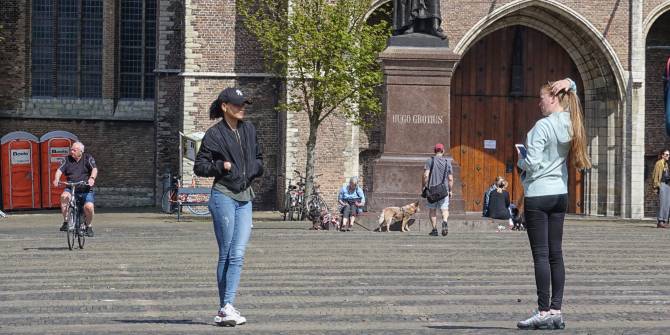Rows between Brazilian leaders slowed down Brazil’s vaccination programme, but the regulatory process and lengthy negotiations over technology transfers also played a part. Elize Massard da Fonseca and Ken Shadlen (LSE) look at the lessons for other middle-income countries.
For middle-income countries (MICs), obtaining, regulating and rolling out COVID-19 vaccines is particularly challenging. They lack the resources and regulatory capacities to pursue the strategies that wealthier countries do. While low-income countries can benefit from global vaccine initiatives, MICs are usually not eligible for them.
Brazil, one of the Latin American nations most affected by COVID, is a striking example. Its vaccine strategy was hampered by political conflicts between the president and some state governors. Brazil also lacked a blueprint for vaccine allocation, so it was unclear who should get the jabs first. Even the regulatory approval process, based in one of Latin America’s most highly regarded regulatory authorities, has not been spared from inter- and intra-governmental conflicts. Political conflict between Jair Bolsonaro and his political rival João Doria, the governor of the country’s wealthiest and most populous state, São Paulo, sowed needless doubts about the quality of COVID vaccines and influenced the planning of the national vaccination campaign.

Brazil’s procurement and production strategy builds on a long trajectory of local production and technology transfer. The process of technology transfer between AstraZeneca and BioManguinhos, a federal laboratory, illustrates a crucial pathway for improving MICs’ access to vaccines. Yet that process faced difficult challenges, including lengthy negotiations to agree to legal terms and adapting local manufacturing practices. Vaccine production was another chapter in the dispute between Bolsonaro and Doria. The São Paulo state-owned laboratory Butantan partnered with Sinovac to produce COVID vaccines but was unable to secure a distribution agreement with the Ministry of Health until December 2020. Bolsonaro blocked the purchase of what he called the “Chinese vaccine”, yielding to pressure from governors and society only at the end of 2020.
We propose three lessons for future crises and vaccine plans, based on Brazil’s experience.
- Sharing knowledge about vaccine production is crucial for ensuring affordable access to these products in MICs. A stable supply of vaccines and medicines can be achieved with local production of pharmaceuticals, although we still need to better understand how to implement such policies on the ground and in tandem with the needs of health systems.
- There is an urgent need to better understand the politics of pharmaceutical regulation in the Global South. Brazil’s case illustrates that MICs are still learning and adapting their regulatory processes, primarily by emulating foreign models (such as the FDA). Future studies should investigate the political dynamics that shape drug approval processes in these countries, particularly during public health crises, when regulatory coherence among agencies is key.
- Health infrastructure is crucial. However, COVID has taught us that government capacity alone is not enough to ensure pandemic preparedness. The contestations over vaccine approval, procurement, and a coordinated national plan in Brazil illustrate the importance of considering politics when responding to pandemics. Procurement and production, regulation, distribution and uptake are all linked, and health and industrial policy should be integrated to address health crises.
This post represents the views of the author and not those of the COVID-19 blog, nor LSE. It is based on Elize Massard da Fonseca, Kenneth C. Shadlen, Francisco I. Bastos: The politics of COVID-19 vaccination in middle-income countries: lessons from Brazil, Social Science & Medicine, Volume 281, 2021.





